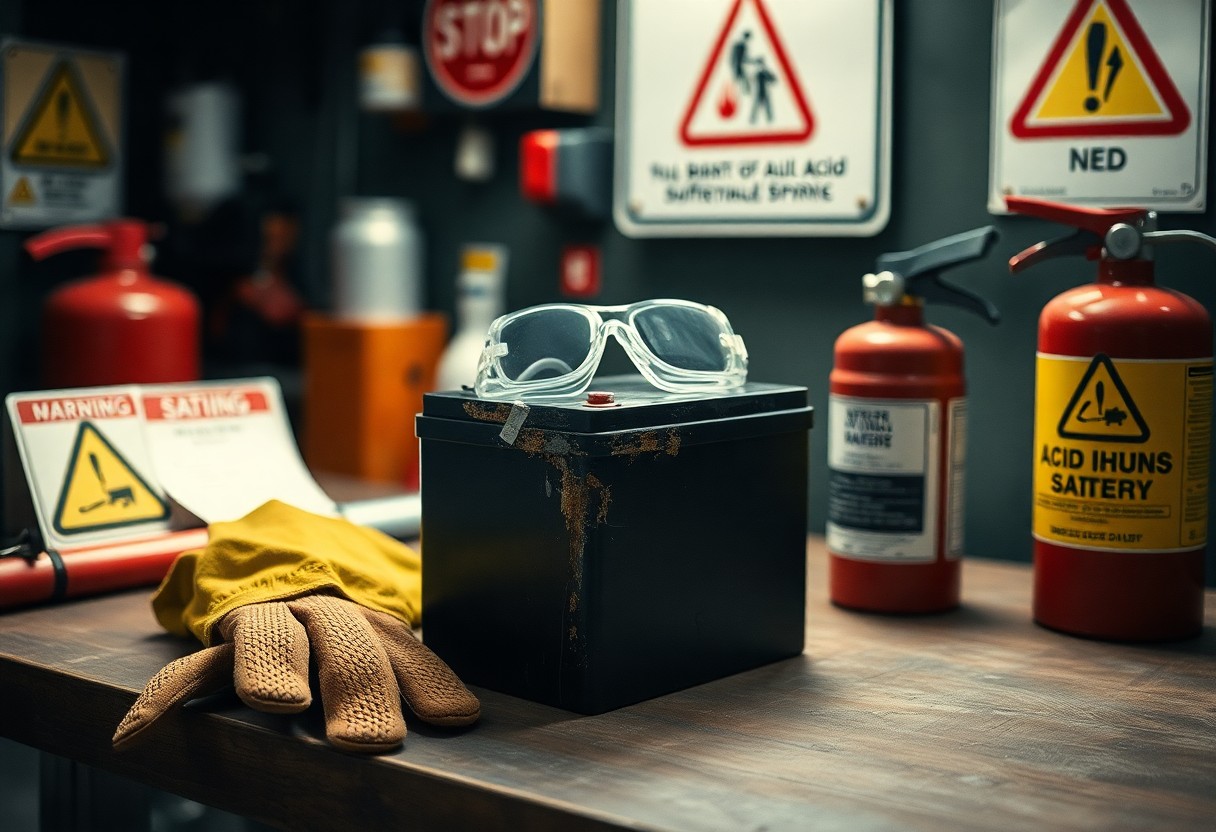You might not think about it often, but batteries are part of your everyday life and come with their own set of risks. Whether you’re using them in your mobile devices, toys, or vehicles, understanding how to handle batteries safely can help you avoid problems such as acid burns and sparks that can lead to accidents.
To get started on battery safety, it’s important to know that batteries contain corrosive materials and can give off harmful chemicals. You should always handle batteries with care, keeping them upright and avoiding any motion that might cause them to leak. When working with batteries, always wear protective gear, like gloves and safety goggles, to minimize the risk of injury.
In addition to personal protective equipment, storing your batteries correctly is crucial. Keep them in a cool, dry place where they won’t be exposed to extreme temperatures or moisture. If a battery is stored in a damp location, it can lead to corrosion and leakage. Even when not in use, batteries can still pose risks if they come into contact with metallic objects or other batteries, leading to short-circuiting.
When handling batteries, avoid touching the terminals with your bare hands. This can lead to a small electric shock, which might be uncomfortable. If you need to connect or disconnect a battery, it’s wise to use appropriately insulated tools. Also, make sure to disconnect batteries only when devices are turned off, minimizing potential sparks that can occur from active electrical circuits.
Should you notice any leaks or damages to a battery, handle them with extreme care. Leaked acid can cause severe skin burns, so you must avoid skin contact. If you do come into contact with battery acid, immediately rinse the affected area with copious amounts of water and seek medical attention if necessary. Dispose of damaged batteries in accordance with local regulations, often involving designated hazardous waste disposal locations.
When charging your batteries, monitor them closely. Overcharging can cause swelling or even explosions, depending on the type of battery you’re dealing with. Always use the correct charger designed for your specific battery type. If you notice any unusual sounds or smells during charging, discontinue use immediately.
Finally, educate those around you, especially children, on the dangers associated with batteries. Keeping batteries out of reach of small children can prevent accidental ingestion or improper handling. Encourage a culture of safety when using or disposing of batteries among family and friends.
By keeping these battery safety tips in mind, you can significantly minimize the risks of acid burns and sparks while enjoying the convenience that batteries bring to your life. Your awareness and proactive measures can create a safer environment for you and those around you.
